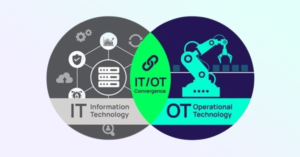In today’s fast-paced world, mastering time management is more than a skill—it’s a necessity. Balancing professional responsibilities with personal life can be challenging, but with the right strategies, it’s entirely achievable. This comprehensive guide delves into the essence of time management, offering practical tips to enhance productivity and maintain a healthy work-life balance.
Understanding Time Management
Time management is the process of organizing and planning how to divide your time between specific activities. Good time management enables you to work smarter, not harder, so you get more done in less time, even when time is tight and pressures are high.
The Importance of Time Management
Effective time management is crucial for several reasons. It helps you achieve your goals faster and more efficiently, reduces stress, and allows for more free time to enjoy other aspects of life. By mastering this skill, you can improve your overall quality of life.
Key Strategies for Effective Time Management
Setting Clear Goals
Begin by defining what you want to achieve. Setting clear, attainable goals gives you a roadmap to follow and helps keep you motivated. Remember, written goals are more likely to be accomplished.
Prioritizing Tasks
Not all tasks are created equal. Learn to prioritize your tasks based on their importance and urgency. This will help you focus on what truly matters, reducing the time spent on less significant activities.
Planning and Scheduling
Allocate specific time slots for each task or activity. Use digital planners or apps to keep track of your commitments. Planning helps prevent last-minute rushes and ensures a more balanced distribution of your time.
Delegating and Outsourcing
Understand that you can’t do everything yourself. Delegating tasks to others can save time and reduce stress. It also allows you to focus on tasks that require your specific expertise.
Avoiding Procrastination
Procrastination is a common barrier to effective time management. Tackle it by breaking tasks into smaller, more manageable parts and setting short, achievable deadlines.
Taking Breaks
Regular breaks are essential for maintaining high productivity levels. Short pauses can help refresh your mind, making you more efficient when you return to work.
Common Time Management Mistakes
Overestimating Productivity
Avoid overloading your schedule. Acknowledge your limits and set realistic expectations for what you can achieve in a given time frame.
Failing to Leave Buffer Time
Always allow extra time between tasks for unexpected delays or emergencies. This helps maintain a flexible and adaptable schedule.
Neglecting Self-Care
Remember, time management isn’t just about work. Allocate time for self-care, relaxation, and hobbies. A well-rounded life is key to sustained productivity.
Final Thoughts on Time Management
Effective time management is a continuous journey. It requires practice, patience, and a willingness to adapt. By implementing these strategies, you can take control of your time, reduce stress, and improve both your professional and personal life.
FAQs
Q: How do I start improving my time management skills? A: Begin by setting clear goals, prioritizing tasks, and planning your schedule. Use digital tools to keep track and don’t forget to include breaks in your plan.
Q: Can time management help reduce stress? A: Absolutely. Effective time management can significantly reduce stress by eliminating the rush and pressure of last-minute tasks.
Q: Is multitasking a good time management strategy? A: No, multitasking can actually decrease productivity. It’s better to focus on one task at a time for better efficiency.
Q: How important is delegation in time management? A: Very important. Delegating tasks frees up your time for more critical activities and can lead to better overall results.
Q: Can time management techniques evolve over time? A: Yes, it’s important to regularly review and adjust your time management strategies to suit your changing needs and circumstances.




